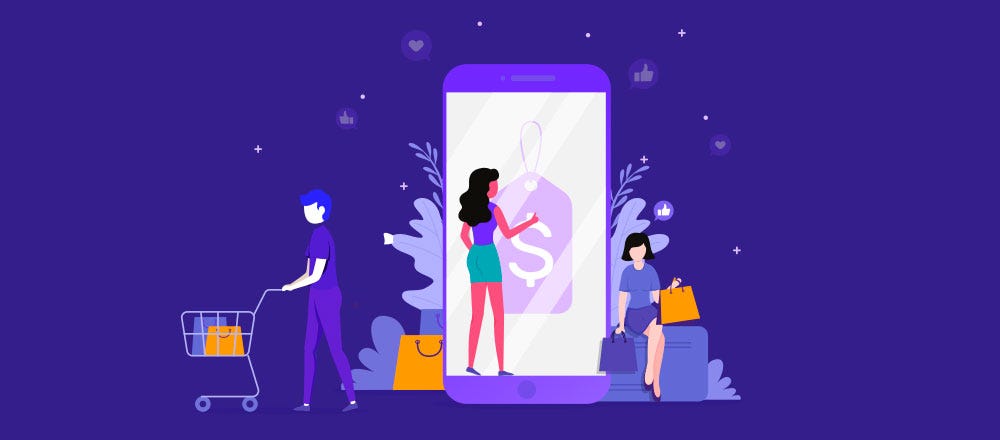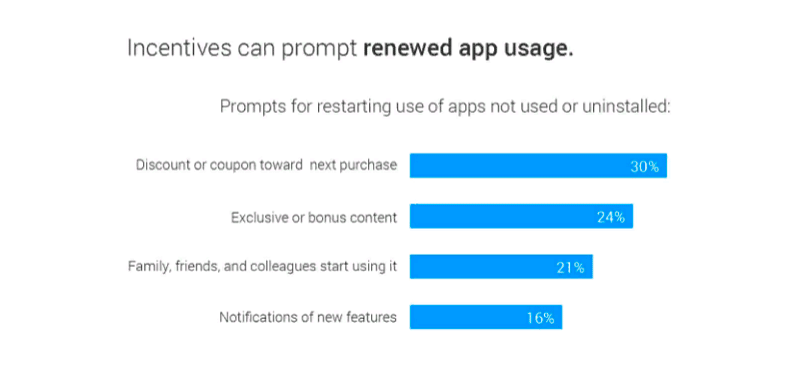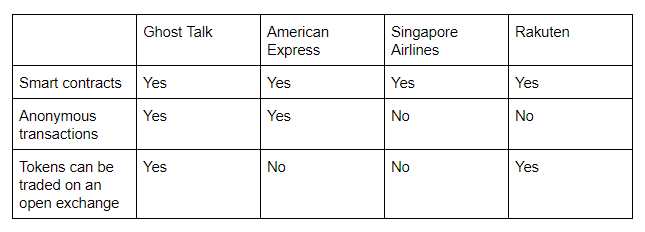Latest news about Bitcoin and all cryptocurrencies. Your daily crypto news habit.
 https://www.freepik.com/free-vector/online-shopping-landing-page_3947106.htm
https://www.freepik.com/free-vector/online-shopping-landing-page_3947106.htm
From coupons to reward cards to cashback and in-app rewards, the way users interact with apps today is constantly changing. Reward programs have been successfully introduced for ecommerce, restaurants, and airlines, but content creators never tasted this kind of benefits even if (for most social apps) they are the ones powering the entire environment.
Reward programs are not new, but blockchain technology is here to reinvent the way users are accessing these deals. In this article, we’re going to discuss why today’s in-app reward ecosystem is doing more harm than good to the users, and how Ghost Talk, American Express, and Singapore Airlines, aim to offer blockchain-powered rewards to their users for the participation while protecting their data at the same time.
What do your coupons look like?
Most of us barely remember clipping the coupons that our parents were keeping into their wallets. Maybe they weren’t the main focus in terms of savings, but slowly, with every grocery bill, they were actively participating in it. Soon enough, this time-consuming “clipping” (or to be more accurate, paper wasting) became unsustainable; most of them ended in the trash anyway.

But this model remained the same, the process only became digital. Plastic reward cards simply moved the problem from paper to plastic waste. The real disruption happened when they were replaced by an application on your smartphone. Cashback and in-app rewards are today’s coupons.
Various companies have seen this shift and understood the needs of enterprises, small businesses, and promoters to directly compensate and reward their users for every action within their platforms.
Why rewards?
Rewards are usually equal to in-app points. They are used as a stepping stone between the user and the tangible reward. Why? Every business wishes to keep a high retention rate. They want to have loyal, active users using their services. Based on a study focusing on customer loyalty:
- Reward programs can increase revenue by 5–10%
- In-app members spend 5–20% more than non-members
- In-app members buy 5–20% more frequently than non-members
These statistics show a direct impact on user retention. Actually, increasing customer retention by just 5% could boost profits by 25 to 95%, according to the advisory firm Bain & Co!
Can reward programs reach market saturation?
When I said that there’s nothing new about rewards programs I meant it. These systems are everywhere and may appear identical. The ones implementing the features tend to seek a winning model instead of trying to understand what drives the interest of their users.
Once a successful model with the average household participating in over nine reward programs, today the reward programs are losing their competitive edge. Only 5% of app users currently spend money on in-app purchases. It’s an alarming figure given that in-app purchase revenue is the number one source of mobile app revenue, accounting for 48.2% of the total earnings.

Half of the apps downloaded from the Google Play store are freemium apps, which leaves the revenue of an app in the hands of its users. Where in the world are people most likely to spend the most in an app? In Asia, where mobile spenders shell out 40% more per month than anywhere else across the globe.
Smart coins for a smart future?
Given their importance, in order for a reward program to be successful in today’s environment, the rewards offered should be attainable, relevant, in line with market trends, and attractive to users. All these characteristics are being neglected when the app owners decide to make it hard for its users to claim the real value of its earned points. That’s why we’re looking at a different approach that’s meant to claim the next step in the evolution of reward programs by using blockchain technology.
Ghost Talk’s social media messaging application uses a decentralized payment platform to reward users using their own Smart Coin token and smart contracts. This means that any activity in the messaging application generates Smart Coin rewards. These are virtual points that are automatically given for various forms of engagement, such as creating new, innovative content or sharing others’ creations. The major difference between these points and any other in-app points is that these come in the form of cryptocurrency. Smart Coin tokens can be traded on an open exchange in which these are listed.
American Express, financial services giant announced that it is leveraging Hyperledger to enable retailers to offer custom membership rewards. Boxed, an American digital retailer is the first one to provide its customers up to five times more membership rewards points than before on every purchase. That’s how much the use of blockchain reduces costs, as well as keeping customers’ data anonymous in the process. The smart contracts will automatically pass the anonymized information to American Express via private blockchain channels.
Singapore Airlines is one of the biggest companies to adopt the blockchain technology for its loyalty program. Their existing membership plan, known as KrisFlyer to its existing members, will now function on a blockchain-based payment system that lets customers pay at a selection of retailers using airline miles earned with their airline.
If the companies above are not convincing enough that the future of reward-based systems is on the blockchain, Rakuten, Japan’s e-commerce giant, already develops its own cryptocurrency for the same purposes. They already issued $9.1 billion in loyalty points via digital coupons, now all these rewards will be distributed through its Rakuten Coin.
While the use of cryptocurrency or blockchain technology may seem accessible only to those who are tech-savvy, in this case, no technical knowledge is required for you to benefit from its technological advantages. According to one study, the biggest challenge reward programs face is ensuring that their users are aware of and understand the program’s utility.
Conclusion
Being a business looking to reward your users or a simple services provider, rewards can be the link to a profitable and faithful relationship, as both parties tried to find their way around the current faulty systems. With initiatives like the companies discussed in this article, who are developing tools on a decentralized technology that values the user more than the middleman, the saying “there’s no such thing as a free lunch” might become obsolete in this content-creation ecosystem.
We don’t Need More In-App Coupons, We Need Cash! was originally published in Hacker Noon on Medium, where people are continuing the conversation by highlighting and responding to this story.
Disclaimer
The views and opinions expressed in this article are solely those of the authors and do not reflect the views of Bitcoin Insider. Every investment and trading move involves risk - this is especially true for cryptocurrencies given their volatility. We strongly advise our readers to conduct their own research when making a decision.

